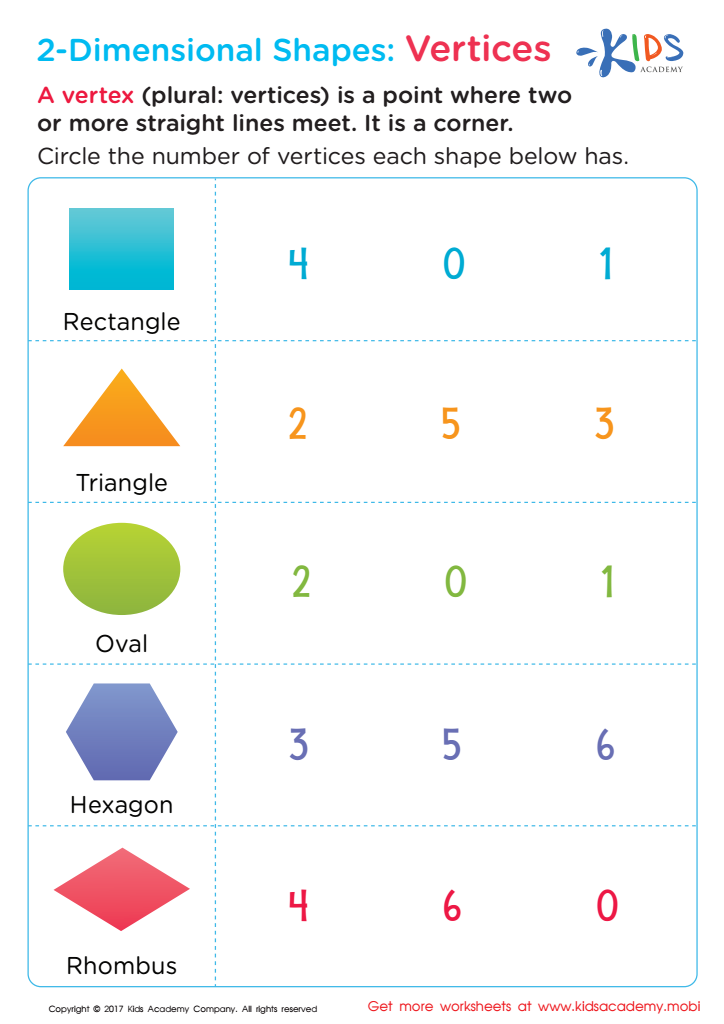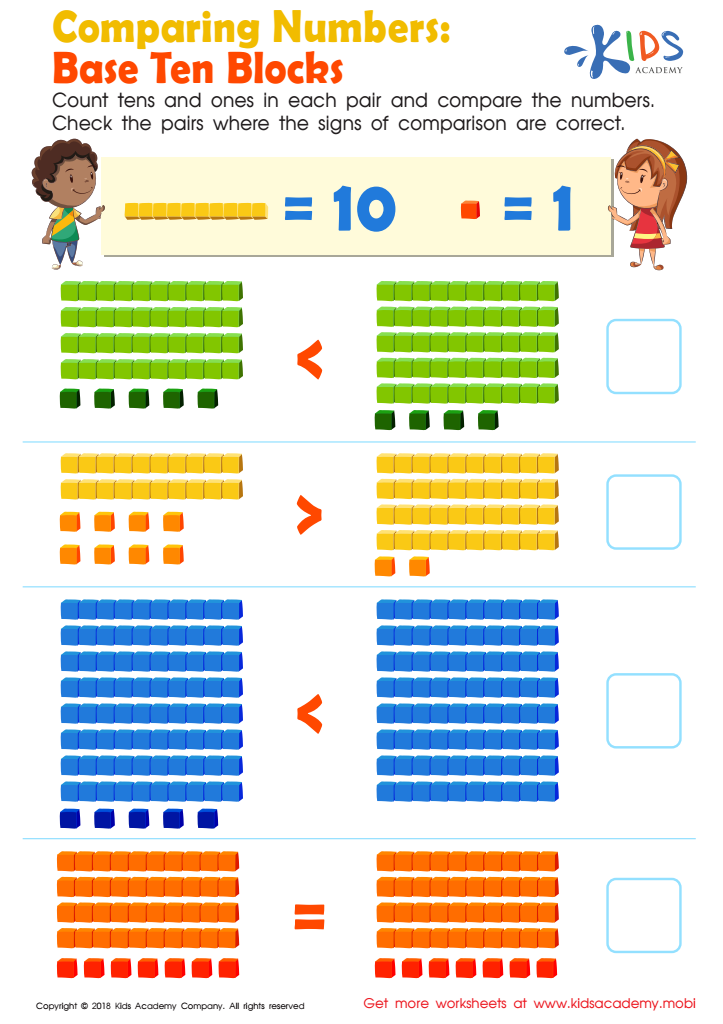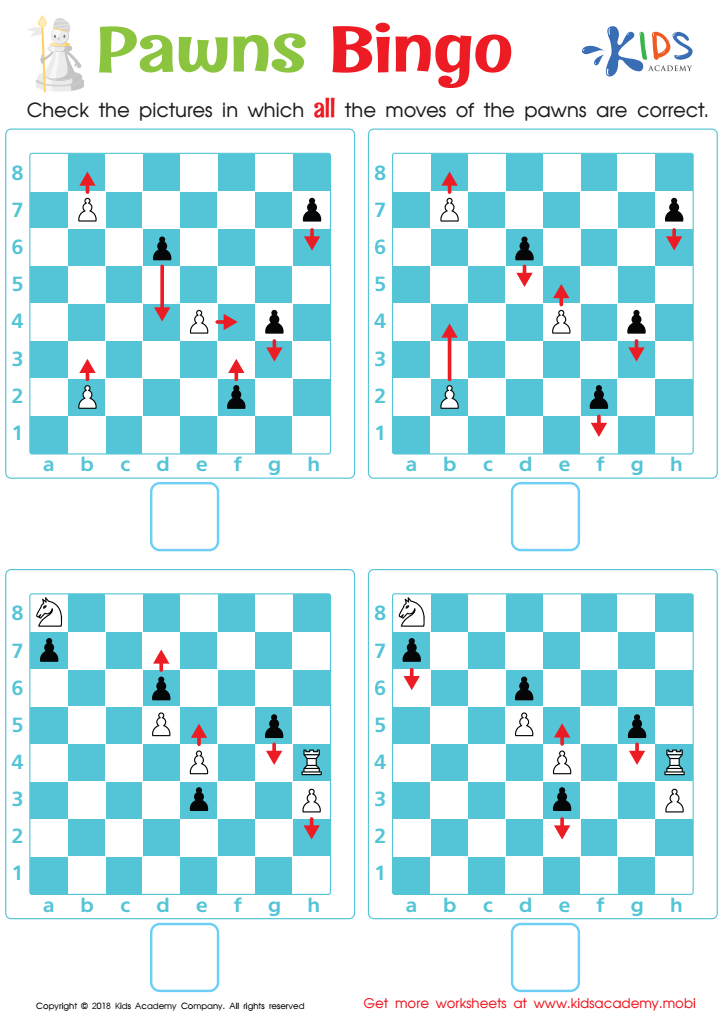Counting skills improvement Worksheets for Ages 4-7
4 filtered results
-
From - To
Enhance your child's counting abilities with our engaging Counting Skills Improvement Worksheets designed for ages 4 to 7. These printable resources provide a fun and interactive way for young learners to practice fundamental counting concepts through colorful illustrations, varied activities, and step-by-step exercises. Our worksheets focus on number recognition, one-to-one correspondence, and simple math problems to build confidence and proficiency. Perfect for homeschooling or supplemental learning, these worksheets cater to diverse learning styles, ensuring every child can thrive. Watch as your little one develops a strong mathematical foundation while enjoying the exciting journey of counting! Start creating a love for math today!


Two–Dimensional Shapes: Vertices Printable


Comparing Numbers: Base Ten Blocks Worksheet


Pawns Bingo Worksheet
Counting skills are foundational for mathematical development in young children aged 4-7, and both parents and teachers play a crucial role in fostering these skills. At this age, children are naturally curious and eager to learn, making it the ideal time to introduce and strengthen counting concepts. Proficiency in counting not only enhances numerical understanding but also serves as a precursor to more complex mathematical operations such as addition and subtraction.
By improving counting skills, children develop critical cognitive processes, such as problem-solving and logical thinking. These skills equip them to navigate not just academic challenges but real-world situations, fostering a sense of independence and confidence. Moreover, strong counting skills support literacy by reinforcing pattern recognition and sequencing, which are essential for reading development.
Parents and teachers should also recognize the social aspect of counting; engaging in counting activities promotes collaboration and communication among peers. This interaction builds social skills and encourages teamwork. By prioritizing counting skills, adults can significantly influence a child's academic trajectory, setting the foundation for future learning in mathematics and related subjects. Investing in these early skills prepares children for success in school and beyond.
 Assign to My Students
Assign to My Students






















